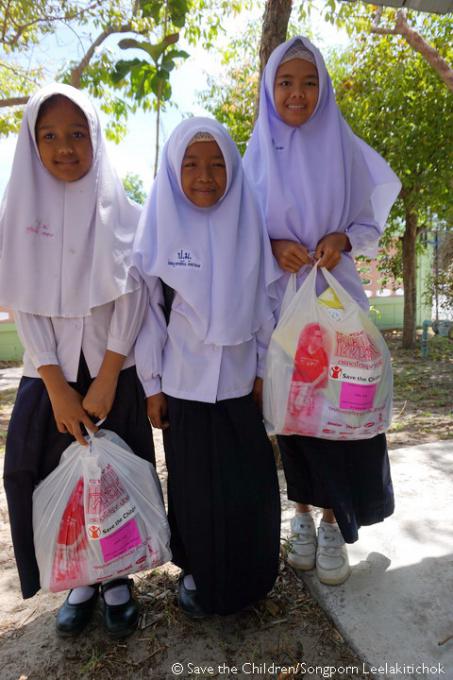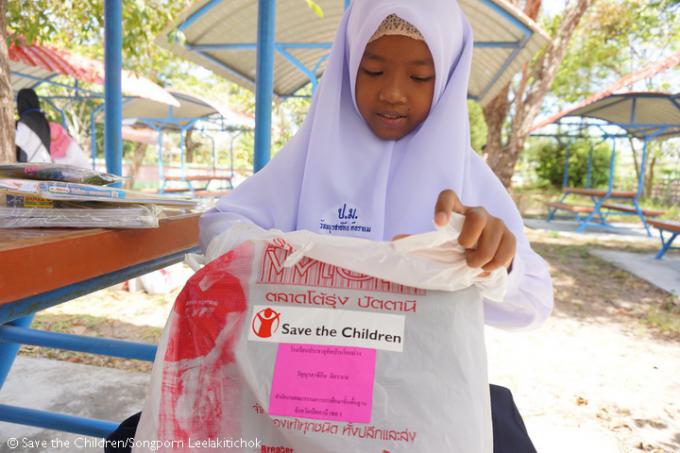9-YEAR-OLD SIKIN FROM PATTANI REFLECTS THAT EDUCATION, IEC MATERIALS, AND CFS SHOULD BE CONSIDERED AFTER DISASTERS

By Songporn Bea Leelakitichok
Wan Nur Hasikin Dueramae (Sikin), 9, lives with her grandmother and goes to school in Pattani province, separated from her parents who live in Narathiwat for work. Her father works in a rubber plantation while her mother is a seller.
When floods hit at the nighttime, Sikin did not know and was asleep with her grandmother and her two younger siblings on the second floor of the house. After the rain stopped in the morning, she came down to play and dipped herself in the water inside the house.
“I enjoyed it a lot. I want it to flood again!” said Sikin. Like most other young children in her age, Sikin is not aware of the natural disaster and how it affected her family, although she admits that she “[I] didn’t like losing books and shirts in the water.”

When asked if she knew why she was brought out of her school to meet many strangers, she replied “I’m here to receive a shirt” and was excited to find that her kit contained more just a shirt.
“I got books, pencils, bag, ruler, shirt, skirt, and socks. I like the bag the most so that I can use it to carry my stuff to school,” said Sikin.
However, she wished a toy were also included so she could get to play with it.

The honest answers from Sikin are reminders that education (with appropriate IEC materials) and child friendly spaces (CFS) are to be considered after any disasters, as they could be very vulnerable. Her answer also shows that many people, particularly young children, of the affected area are still not aware of natural disasters and what damages they can bring. Hence, Save the Children believes it is crucial to empower relevant service-providers to understand and be able to assess the needs of these children, and respond to these needs. At the same time, there is a room of improvement for children and their families to learn and become more aware as well as be able to prepare themselves better in the future.



